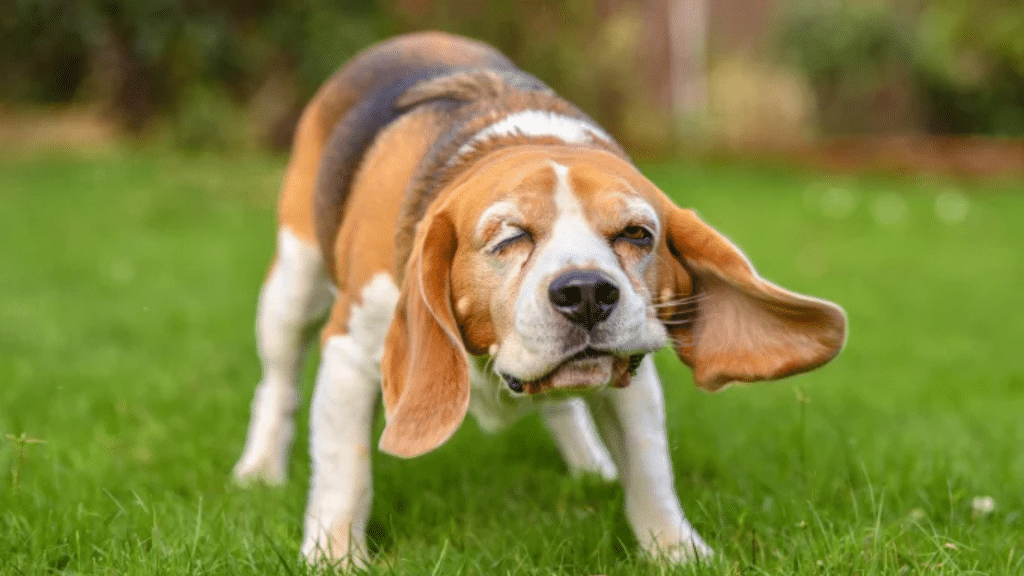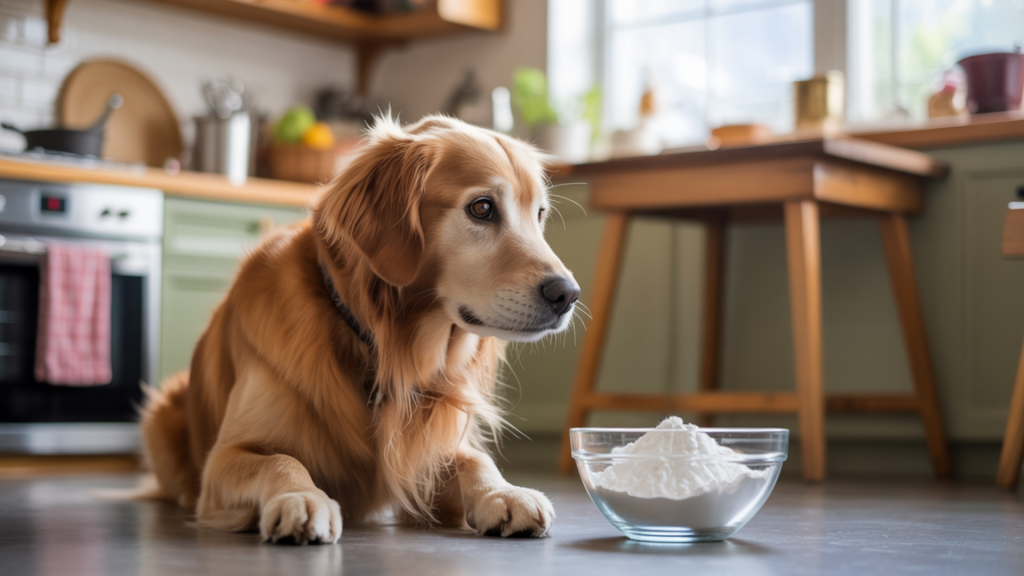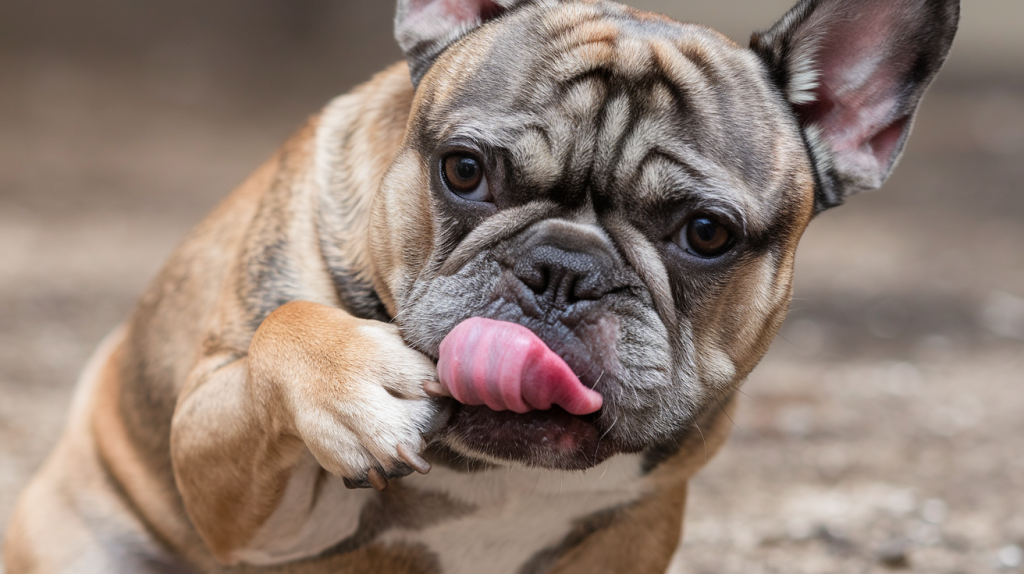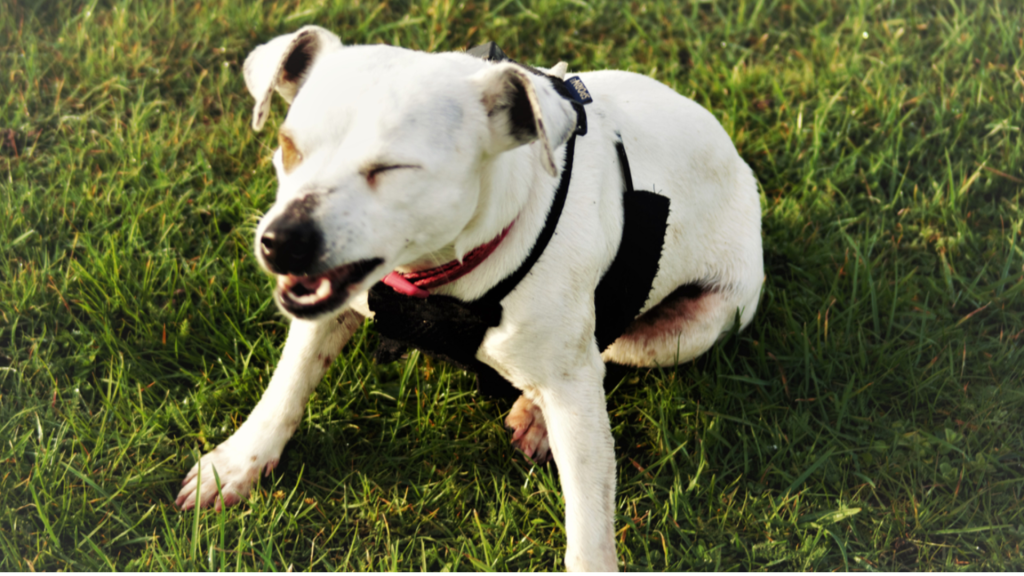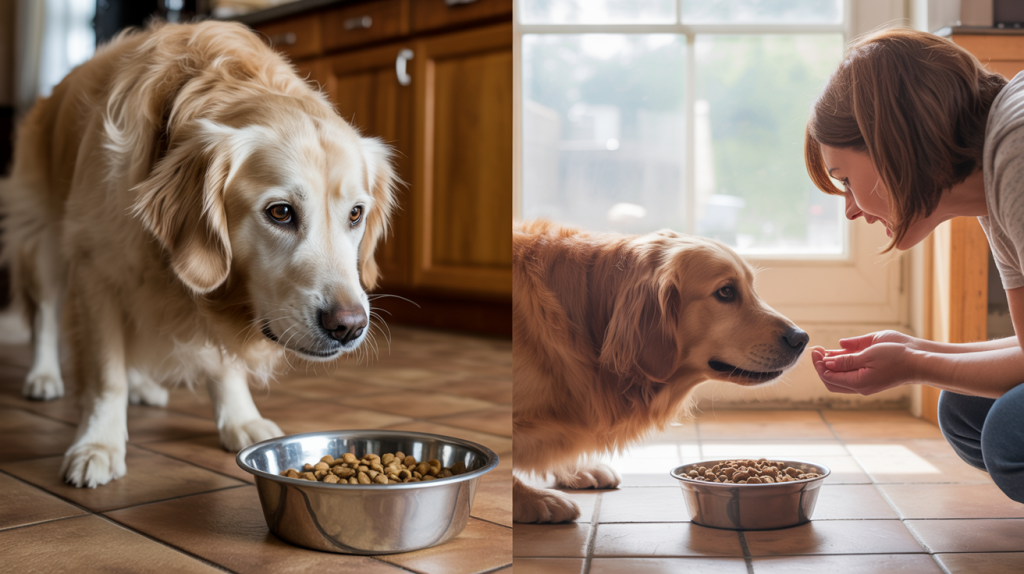Dogs shaking their heads once or twice is normal. But when the shaking becomes constant, something’s definitely wrong. Every pet parent needs to know when head shaking crosses from normal to concerning.
This blog explains why your dog keeps shaking his head and reveals what’s really happening.
Sometimes it’s just water trapped after swimming. Other times, painful conditions need immediate treatment that can’t wait another day.
The difference between harmless head shakes and serious problems becomes clear here. Warning signs that demand vet visits versus minor issues manageable at home are covered, along with prevention strategies.
When Dog Head Shaking Means More Than Just a Habit
A little head shake is totally normal. Dogs shake their heads to get water out after baths or remove something tickling their ear. It’s like when we scratch an itch.
But when a dog shakes its head all day long, something’s wrong. Your dog might have an ear infection, mites, or something stuck deep inside.
Allergies can make ears super itchy, too. Watch for other signs like bad smell from the ears, red skin, or brown gunk.
If your pup shakes their head more than a few times daily, tilts it to one side, or scratches constantly, it’s time to see the vet. Don’t wait for ear problems to get worse fast.
Common Causes for Concern
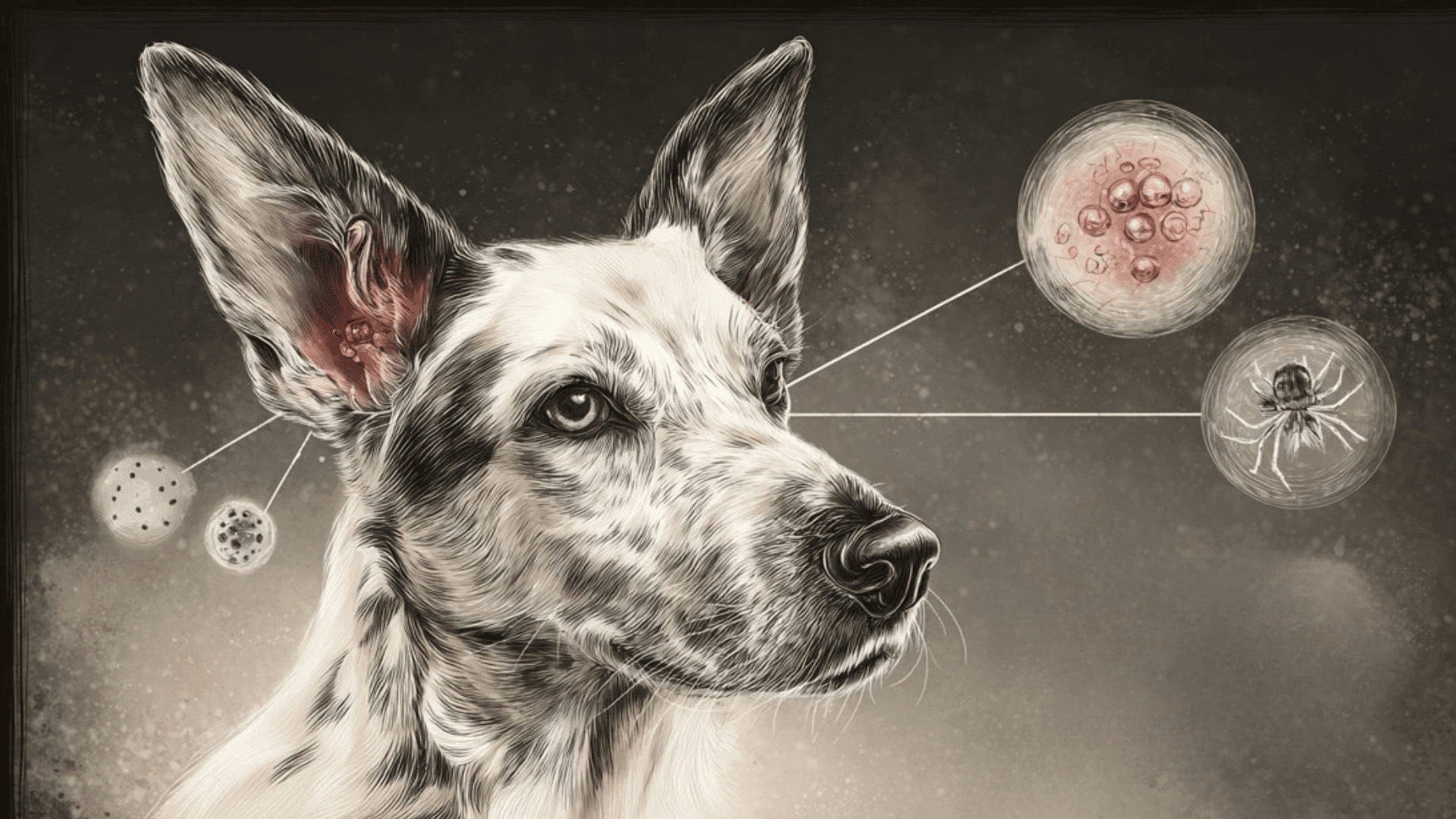
If your dog keeps shaking its head, it usually means irritation or an underlying issue that needs attention.
- Ear infections: Bacteria or yeast in the ear canal can cause itching, redness, swelling, and a bad odor. Left untreated, infections may become very painful and spread deeper into the ear.
- Ear mites or parasites: These tiny pests are highly irritating and make dogs scratch and shake their heads nonstop. They are more common in puppies and can spread easily between pets.
- Allergies (food or environmental): Allergies to pollen, dust, or certain foods can cause ear inflammation, itching, and recurring infections. Dogs with allergies often lick their paws or have skin issues, too.
- Foreign objects in the ear: Small items like grass seeds, dirt, or debris can become lodged in the ear canal. This causes sudden discomfort, constant shaking, and sometimes pawing at the ear.
- Excess earwax buildup: Too much wax traps dirt and moisture inside the ear, creating the perfect environment for bacteria or yeast to grow. This often leads to irritation and head shaking.
- Ear hematomas from constant shaking: Repeated vigorous shaking can burst small blood vessels in the ear flap. This causes a swollen, painful pocket of blood that usually needs veterinary treatment.
Deeper or Rarer Causes
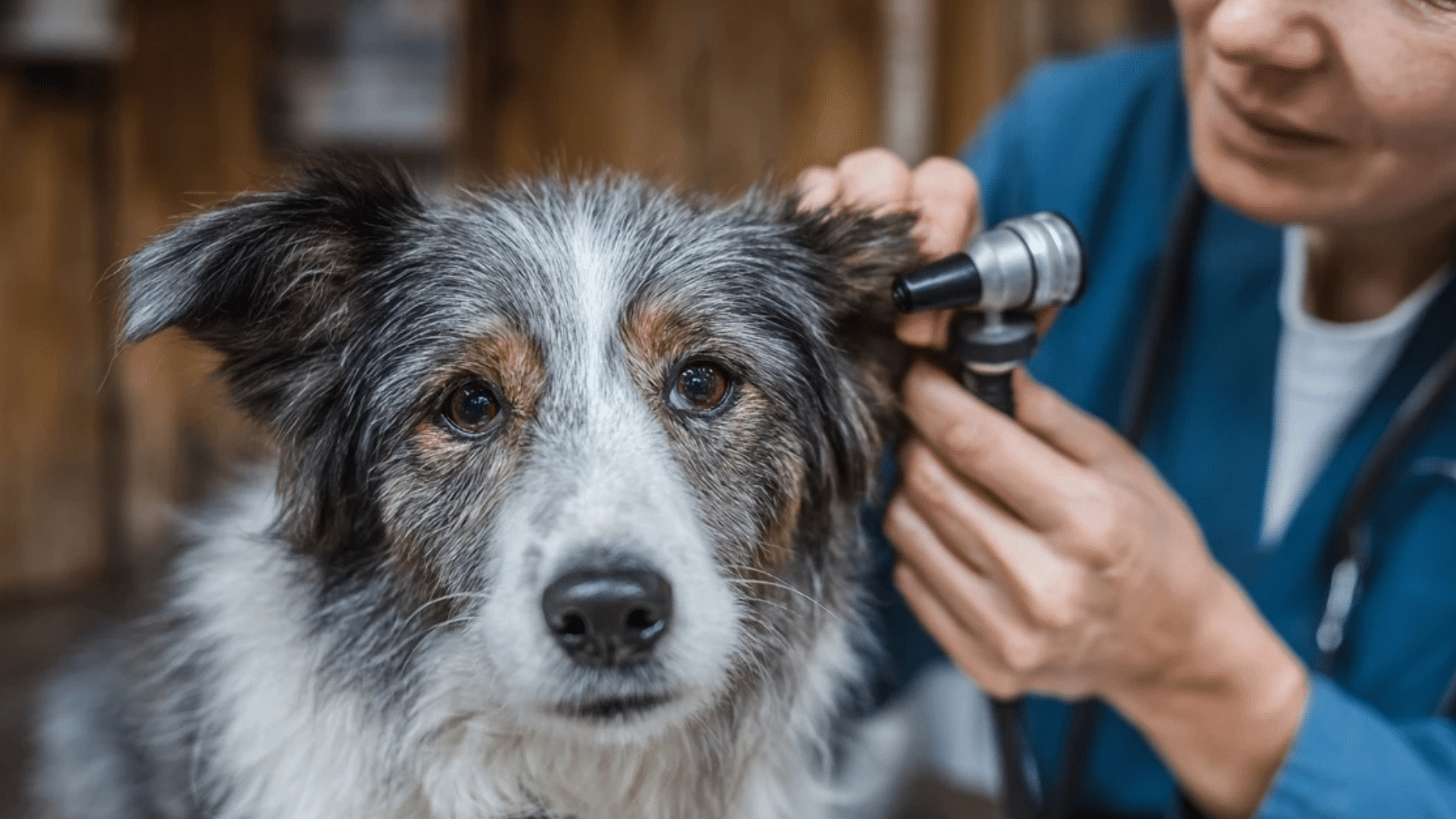
If you’re wondering why your dog keeps shaking his head a lot, it may point to more than just common ear issues. Below are some deeper or rarer causes to watch for:
Neurological Issues
Conditions like seizures, vestibular disease, or nerve disorders can make dogs shake their heads repeatedly.
These issues often affect balance and coordination, causing tilting, stumbling, or circling in addition to shaking. If you notice these symptoms together, it’s important to seek veterinary care quickly.
Skin Conditions
Dogs with severe skin allergies, dermatitis, or fungal infections around the ears may constantly shake their heads to relieve the itch.
The irritation can spread from the skin to the ear canal, making the problem worse. Treating the underlying allergy or infection usually helps resolve the shaking.
Polyps or Tumors
Unusual growths in the ear canal, such as polyps or tumors, can block airflow and cause discomfort.
This often leads to frequent head shaking, pawing at the ears, or signs of hearing loss. Since these require veterinary diagnosis and possible removal, they shouldn’t be ignored.
Medication Reactions
Certain medications may trigger irritation or inflammation in the ear as a side effect.
For example, topical treatments or even systemic drugs can sometimes make your dog shake its head more than usual. If the shaking starts soon after starting a new medication, contact your vet.
Dental Problems
Pain from dental infections or abscesses can radiate to the jaw and ears, making a dog shake its head in discomfort.
You might also notice drooling, chewing on one side of the mouth, or reluctance to eat. Addressing dental health can often resolve the ear-related symptoms.
Trauma or Injury
Head or ear injuries, such as scratches, bites, or blunt trauma, can make a dog shake to relieve pain.
This may also lead to swelling, redness, or sensitivity when the ear is touched. Early treatment can prevent the injury from worsening or becoming infected.
Proven Home Remedies That Work for Dogs
Below is a table of proven remedies that actually work for dogs:
| Home Remedy | Why It Works |
|---|---|
| Vet-approved ear cleaner | Safely removes dirt, wax, and bacteria without irritating the ear canal. |
| Drying ears after swimming or bathing | Prevents trapped moisture, which lowers the risk of ear infections. |
| Wiping the outer ear with a damp cloth | Gently clears away dirt and debris without going deep into the ear canal. |
| Balanced diet and omega-3 supplements | Supports overall skin and ear health, reducing allergy-related ear problems. |
| Regular grooming around the ears | Keeps hair trimmed, improving airflow and reducing buildup. |
| Keeping your dog’s environment clean | Reduces exposure to dust, pollen, and irritants that can trigger ear problems. |
| Routine vet checkups | Helps catch early signs of infection or buildup before they become serious. |
Preventive Care & Home Support
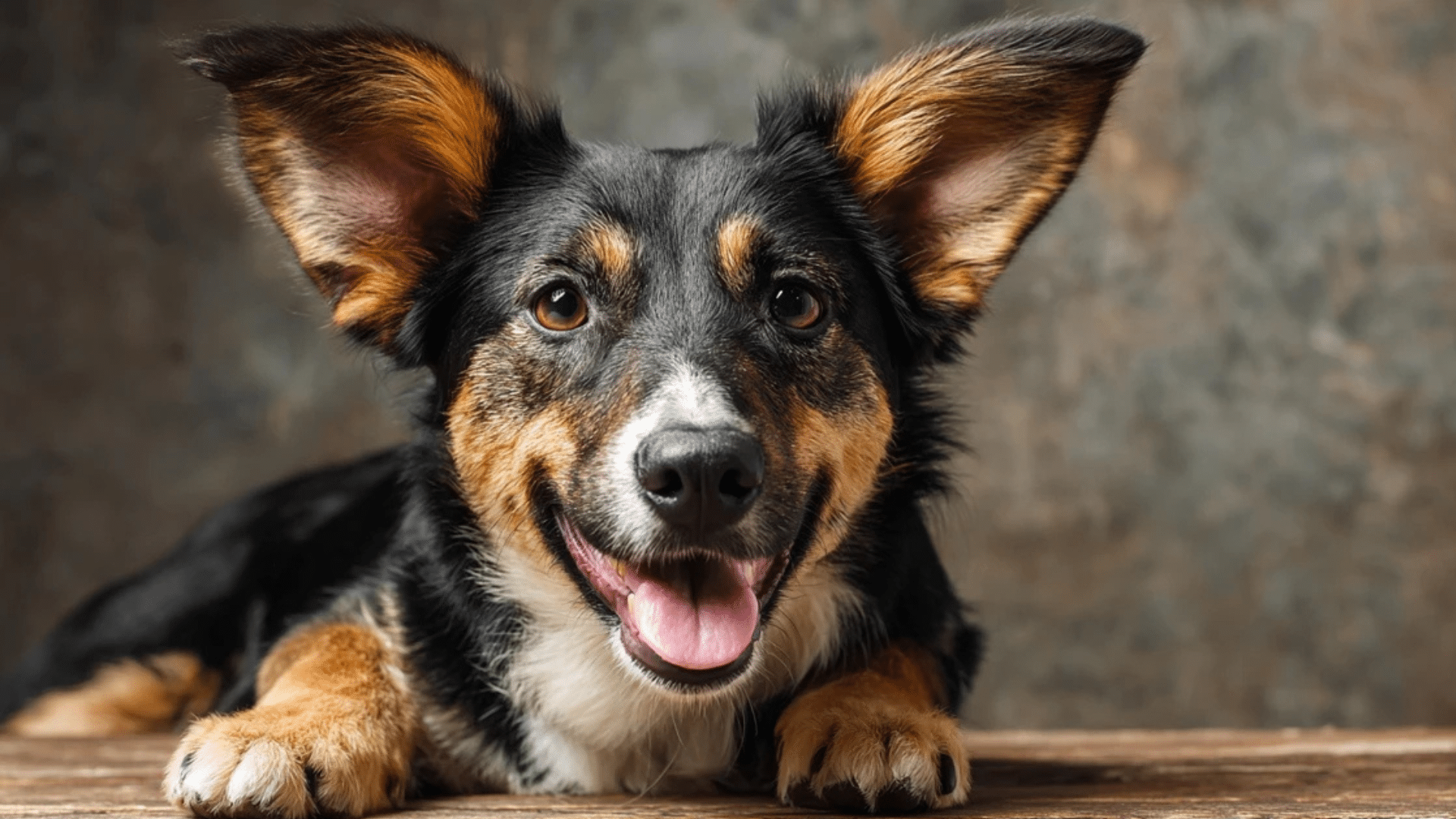
Preventive care and home support can greatly reduce the chances of your dog developing ear problems. With consistent routines and proper attention, you can keep their ears healthy and comfortable.
1. Regular ear cleaning: Use a vet-approved ear cleaner to remove dirt, wax, and moisture.
2. Dry ears after bathing or swimming: Moisture in the ears is a common trigger for infections.
3. Routine grooming: Trim excess hair around the ears to improve airflow and reduce buildup.
4. Balanced diet: A nutrient-rich diet supports immune health and reduces allergy risks.
5. Regular vet checkups: Early detection of ear issues prevents them from becoming serious.
6. Monitor behavior: Watch for early signs like scratching or shaking, and address them promptly.
Conclusion
Now the puzzle makes sense! A quick shake after swimming is fine. But all-day shaking means something hurts. Ear infections, tiny bugs, or allergies are often to blame. Sometimes it’s even tooth pain.
Prevention is simple. Dry those ears after baths. Clean them once a week. Watch for stinky smells or brown goop.
These easy tips save money and keep dogs happy. When head shaking won’t stop or ears look red and angry, don’t wait. Get help right away. Happy ears mean a happy dog.
Has your dog dealt with ear troubles?
Frequently Asked Questions
Why Does My Dog Keep Shaking His Head at Night?
Head shaking at night may be due to ear irritation, allergies, or discomfort that feels worse when your dog is resting. If it happens often, it’s best to have your vet check for infections or ear mites.
Dog Keeps Shaking Head but Ears Are Clean. What Could Be the Reason?
Even if ears look clean, issues like allergies, microscopic infections, or irritation deeper in the ear canal may be present. A vet exam is needed to detect hidden causes.
Dog Keeps Shaking Head and Tilting to One Side. Is It Serious?
Yes. Head shaking with a head tilt can signal inner ear infection, vestibular disease, or other neurological issues. This should be treated as urgent and checked by a vet right away.
Treatment for Dog Shaking Head. What Are the Options?
Treatment depends on the cause. Vets may prescribe ear drops, antibiotics, antifungals, allergy medication, or remove foreign objects.


